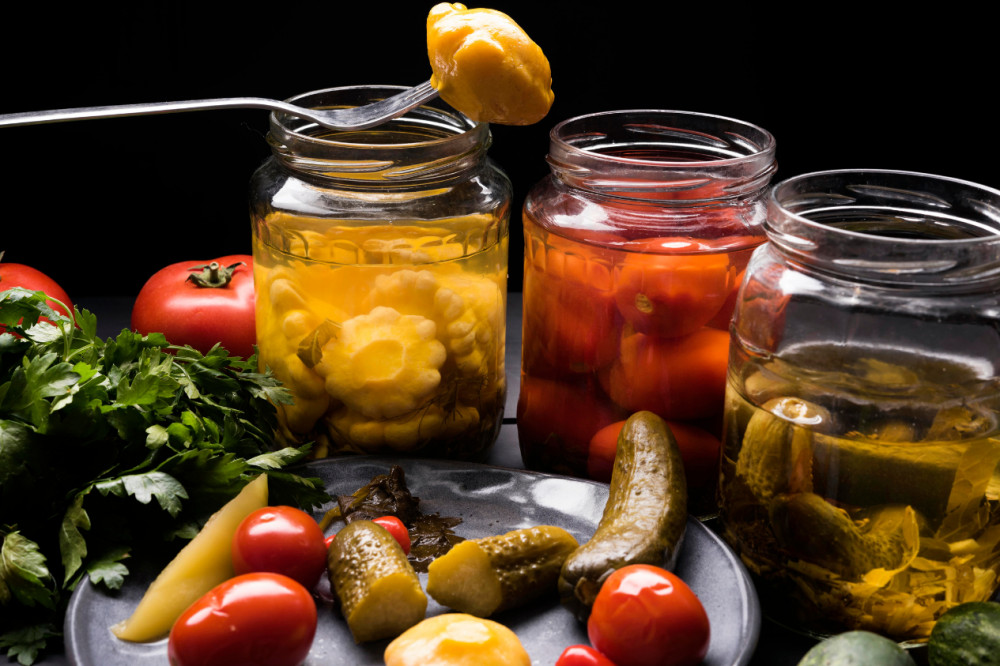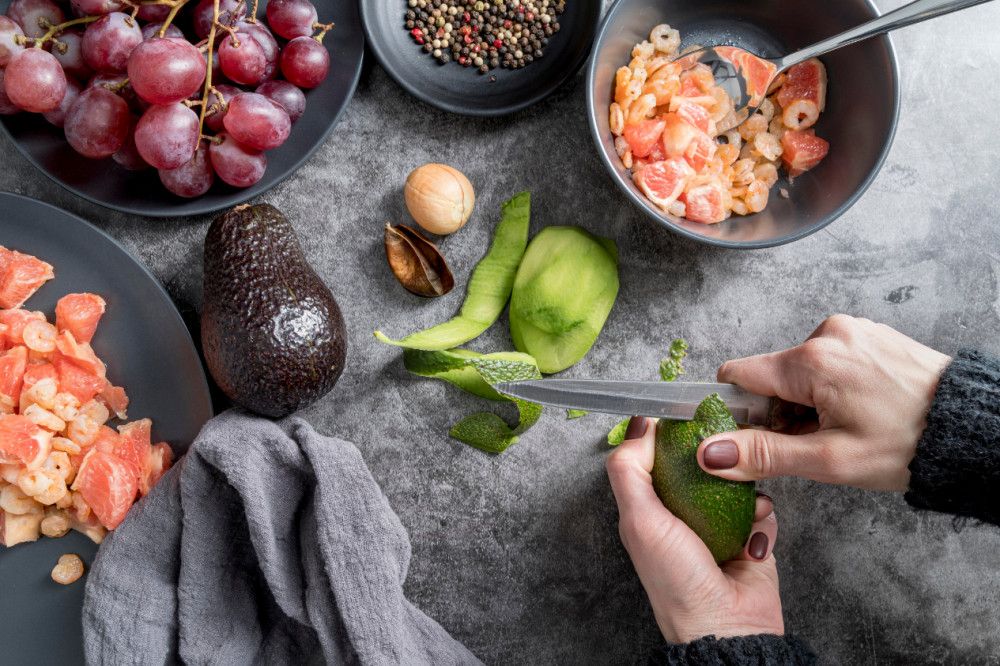
Ginger – A Medically Proven Miracle
Ginger – A Medically Proven Miracle
A snapshot of the health benefits of ginger
“This really isn't about whether ginger tea or chicken soup work. It's really about conveying to people that medicines (for colds) aren't necessary and could be potentially dangerous for kids.” -Bill Pfeiffer
For vegetarians ginger tea is the perfect remedy to combat a cold! But very few are aware that ginger, considered to be the healthiest (and most delicious) spices on the planet, has a plethora of nutrients and bioactive compounds that promise lots of other super benefits for your body and brain. In fact medical research claims ginger to be a miracle food basis the results of studies conducted on human beings and animals.
Foodism brings you a closer look at this super spice …
About ginger
Ginger is a flowering plant that has its roots in China. It belongs to the Zingiberaceae family, and is closely related to turmeric, cardamom and galangal. The rhizome (underground part of the stem) is the part commonly used as a spice. It is popularly termed ginger root, or simply ginger.
Ginger goes back long so far as its use in various forms of traditional medicine is concerned; as it facilitates digestion, alleviates nausea, helps fight the flu and common cold, et al.
Ginger is used - fresh, dried, powdered, or as an oil or juice; and is sometimes added to processed foods and cosmetics. It is a popular ingredient in recipes.
Ginger owes its unique fragrance and flavour to its natural oils, the most important of which is gingerol - the main bioactive compound in ginger, responsible for much of its medicinal properties; and credited with powerful anti-inflammatory and antioxidant effects.
How can ginger be used in recipes?
Ginger can be used for extra flavour in varied items like:
- Soups
- Marinades for meat and fish
- Asian-inspired stir fry
- Homemade salad dressing
- Smoothies
- Sweet potato and carrot dishes
- Tea
- Cocktails
- Baked desserts
- Pickles and vegetables
Benefits of ginger
Now let’s take a quick look at some of the major benefits of ginger –
Alleviates nausea
Ginger is a sure-shot solution for varied forms of nausea like– pregnancy-related morning sickness; sea sickness; post-surgery sickness; post-chemotherapy nausea et al.
Fights infections
Gingerol, the bioactive substance in fresh ginger, lowers the risk of infections. Ginger extract can inhibit the growth of many different types of bacteria; and is very effective against the oral bacteria linked to inflammatory diseases in the gums, such as gingivitis and periodontitis. Fresh ginger may also be effective against the RSV virus, a common cause of respiratory infections.
Helps with osteoarthritis
Osteoarthritis comprises degeneration of the joints in the body, leading to symptoms like joint pain and stiffness. Research claims that a combination of ginger, mastic, cinnamon and sesame oil - when applied topically - can reduce pain and stiffness in osteoarthritis patients.
Improves brain function
Oxidative stress and chronic inflammation can accelerate the aging process and are among the key drivers of Alzheimer’s disease and age-related cognitive decline. Ginger supposedly improves brain function and provides protection against Alzheimer’s disease.
Is anti-carcinogenic
The anti-cancer properties in ginger are attributed to 6-gingerol, a substance that is found in large amounts in raw ginger. There is some, albeit limited, evidence that ginger may be effective against pancreatic cancer, breast cancer and ovarian cancer.
Lessens menstrual pain
Menstrual pain (dysmenorrhea) refers to pain felt during a woman’s menstrual cycle – ginger provides immense pain relief during this period.
Lowers blood sugar
Ginger may apparently lower blood sugars and improve heart disease risk factors. Hence ginger may have powerful anti-diabetic properties. It allegedly improves HbA1c (a marker for long-term blood sugar levels); and reduces - the ApoB/ApoA-I ratio and markers for oxidized lipoproteins – which are both major risk factors for heart disease.
Lowers cholesterol levels
High levels of LDL lipoproteins (the bad cholesterol) are linked to an increased risk of heart disease. Consuming ginger can lead to significant reductions in LDL cholesterol and blood triglyceride levels.
Relieves and reduces muscle pain and soreness
Ginger is purported to be effective against exercise-induced muscle pain specifically the day-to-day progression of the same owing to its anti-inflammatory properties.
Treats Dyspepsia
Dyspepsia (chronic indigestion) is marked by recurrent pain and discomfort in the upper part of the stomach due to delayed emptying of the stomach. Consuming ginger soup in the meal or ginger powder before a meal can accelerate the emptying of the stomach
Ginger recipe
Homemaker Preeti Bhatt shares the recipe of her favourite baked item - Butternut Squash, Coconut, and Ginger Muffins
Ingredients -
Large eggs - 2
Melted unsalted butter - 10 Tablespoons
Buttermilk – Two-third Cup
Grated peeled ginger - 2 Teaspoons
Light brown sugar – Two-third Cup + 2 Tablespoons
All-purpose flour – 2 Cups
Baking powder – 2 Teaspoons
Baking soda – One-fourth Teaspoon
Ground cinnamon – 1 Teaspoon
Kosher salt – 1 Teaspoon
Grated (on large holes of box grater) Peeled Butternut Squash – 2 Cups
Unsweetened shredded coconut – Three-fourth Cup
Coarsely chopped pecans - Three-fourth Cup
Method –
- Preheat oven to 375°
- Line a standard 12-cup muffin pan with liners
- Whisk eggs, butter, buttermilk, ginger, and two-third cup brown sugar in a medium bowl
- Whisk flour, baking powder, baking soda, cinnamon, and salt in a large bowl
- Mix egg mixture into dry ingredients with a wooden spoon or rubber spatula; then add squash, coconut, and pecans
- Divide batter among muffin cups, filling them to the brim (about half-cup batter per muffin). Sprinkle the remaining 2 tablespoons of brown sugar on top
- Bake muffins, rotating pan halfway through, until they turn golden brown and a tester inserted into the centre comes out clean (say for 30–32 minutes)
- Let it cool in the pan for 5 minutes, then transfer the muffins to a wire rack and let them cool completely
- Store them in an air-tight container
In a nutshell ginger is credited with a lot of medicinal properties and especially during the on-going pandemic this super food is a mandate ingredient of broths, cooked vegetables, tea and the kadha (herbal decoction).
Related Blogs

Flavours of Mizoram: The Harvest Table You Need to Try
39 Views

Fusion Thanksgiving: India-Inspired Global Feast
82 Views

Food Offerings and Festive Plates of Kartik Purnima
183 Views

The Science of Ferment: Easy Homemade Fermented Foods
132 Views

Zero-Waste Cooking: 7 Dishes That Use Every Bit
133 Views